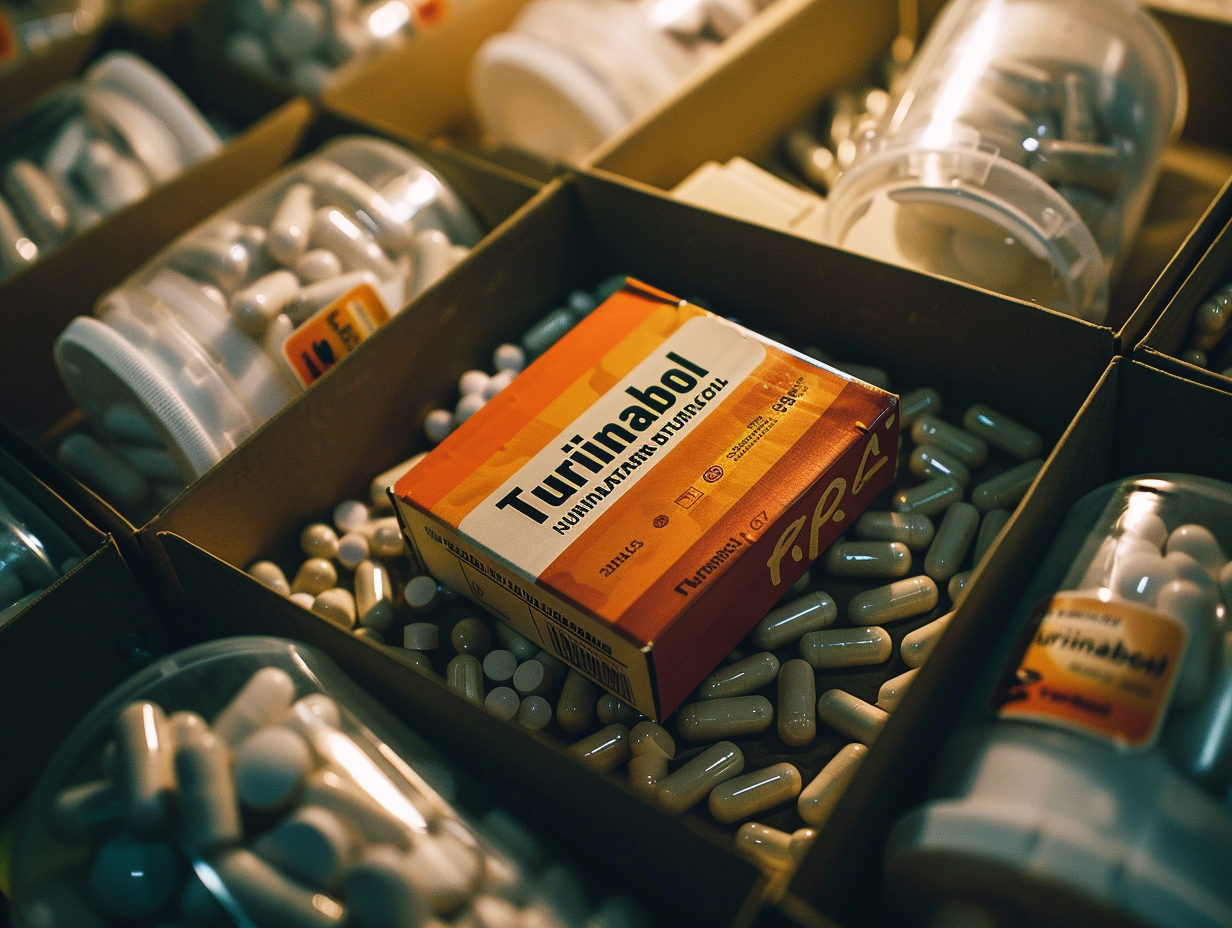The Side Effects of Turinabol
Short-term Side Effects
Liver Toxicity: Turinabol is a 17-alpha-alkylated anabolic steroid, which allows it to survive the first pass through the liver and enter the bloodstream effectively. However, this chemical modification also places a significant strain on the liver. Users may experience elevated liver enzymes, which indicate liver stress. Symptoms can include fatigue, yellowing of the skin or eyes (jaundice), and pain in the upper right quadrant of the abdomen.
Hormonal Imbalances: Turinabol can disrupt the natural balance of hormones in the body, particularly testosterone and estrogen. In men, this may lead to decreased natural testosterone production, testicular atrophy, and gynecomastia (development of breast tissue). Women might experience masculinization effects such as deepened voice, increased body hair, and menstrual irregularities.
Changes in Lipid Profile: Turinabol negatively impacts cholesterol levels by increasing LDL (bad cholesterol) and decreasing HDL (good cholesterol). This shift can lead to a buildup of cholesterol in the arteries, potentially increasing the risk of heart disease and stroke even after short-term use.
Long-term Side Effects
Cardiovascular Risks: The altered lipid profile, along with potential increases in blood pressure, heightens the risk of developing cardiovascular diseases such as atherosclerosis, heart attacks, and strokes. These risks may persist long after cessation of Turinabol due to lasting effects on the vascular system.
Liver Damage: Prolonged use of Turinabol can lead to more severe liver issues, including the development of liver cysts and tumors. Both benign and malignant liver tumors have been linked to long-term anabolic steroid use, which can be life-threatening.
Hormonal Dysfunction: Long-term hormonal imbalances can result in permanent endocrine system damage. Men might suffer from chronic low testosterone levels, requiring ongoing replacement therapy, while women could face persistent masculinization and fertility issues.
Psychological and Behavioral Effects
Mood Swings and Aggression: Steroid use is often associated with alterations in mood and behavior. Users may experience mood swings, increased irritability, and aggressive behavior, commonly referred to as "roid rage."
Potential for Dependency and Withdrawal Symptoms: The psychological dependency on steroids can be as challenging as physical side effects. Users might experience withdrawal symptoms such as depression, fatigue, and anorexia when they stop using steroids, which can complicate the cessation process.
Mitigating the Side Effects of Turinabol
Lifestyle Adjustments
Making informed lifestyle choices is essential in mitigating the side effects of steroids and promoting overall health.
Diet Recommendations: A diet rich in liver-friendly foods (such as leafy greens, nuts, and fish high in omega-3 fatty acids) can support liver health. Reducing intake of saturated fats, sugars, and refined carbohydrates helps manage cholesterol levels and overall cardiovascular health.
Exercise Guidelines: While moderate exercise is beneficial, intense workouts can exacerbate the side effects of steroids like Turinabol. Balancing cardiovascular exercises with strength training can enhance heart health without overly stressing the body.
Supplemental Support
Certain supplements may help reduce the adverse effects of Turinabol, though they should be used under medical supervision.
Liver Protectants: Supplements like milk thistle, N-acetyl cysteine, and TUDCA (tauroursodeoxycholic acid) have properties that can support liver health and potentially protect against liver toxicity.
Hormone Balancers: Supplements that support natural hormone production, such as vitamin D, zinc, and magnesium, can be beneficial in managing the hormonal disruptions caused by steroid use.
Regular Blood Work
As with regular usage of any anabolic steroids, we recommend routine blood work to stay ahead of potential health risks and minimize long term health complications. Given the significant impact turinabol can have on one’s liver, its important to get regular liver function tests to minimize the damage done (see here for recommended schedule of testing).
Get Your Bloodwork Checked
Using performance-enhancing drugs? Regular blood work is essential to monitor your liver, kidneys, lipids, and hormones. TeleTest makes it easy — order lab tests online, visit a lab near you, and get results in 48 hours.
- Order a steroid blood panel — comprehensive panel for PED users
- Blood work guide for steroid users — what tests you need and why
- Find a lab near you — LifeLabs and Dynacare locations across Canada
FAQ & Recap
Q: Can Turinabol cause erectile dysfunction?
A: Yes, Turinabol (Tbol) can potentially cause erectile dysfunction, particularly with prolonged use or high doses. This is often due to its suppressive effect on natural testosterone production, which can lead to hormonal imbalances that negatively affect sexual function.
Q: Does Tbol increase heart rate?
A: Turinabol is not commonly known to directly increase heart rate. However, like other anabolic steroids, it can have cardiovascular effects such as raising blood pressure and altering cholesterol levels, which may indirectly stress the heart and lead to changes in heart rate in some individuals.
Q: Is Tbol hard on the liver?
A: Yes, Turinabol is hepatotoxic, meaning it can be hard on the liver. It is a 17-alpha-alkylated steroid, which allows it to survive oral ingestion but also makes it more stressful on the liver. Prolonged use or high doses increase the risk of liver damage, including conditions such as elevated liver enzymes, jaundice, or liver tumors.
Disclaimer: This blog post is intended for educational purposes only and should not be taken as medical advice. Always consult your healthcare provider for personal health concerns.
